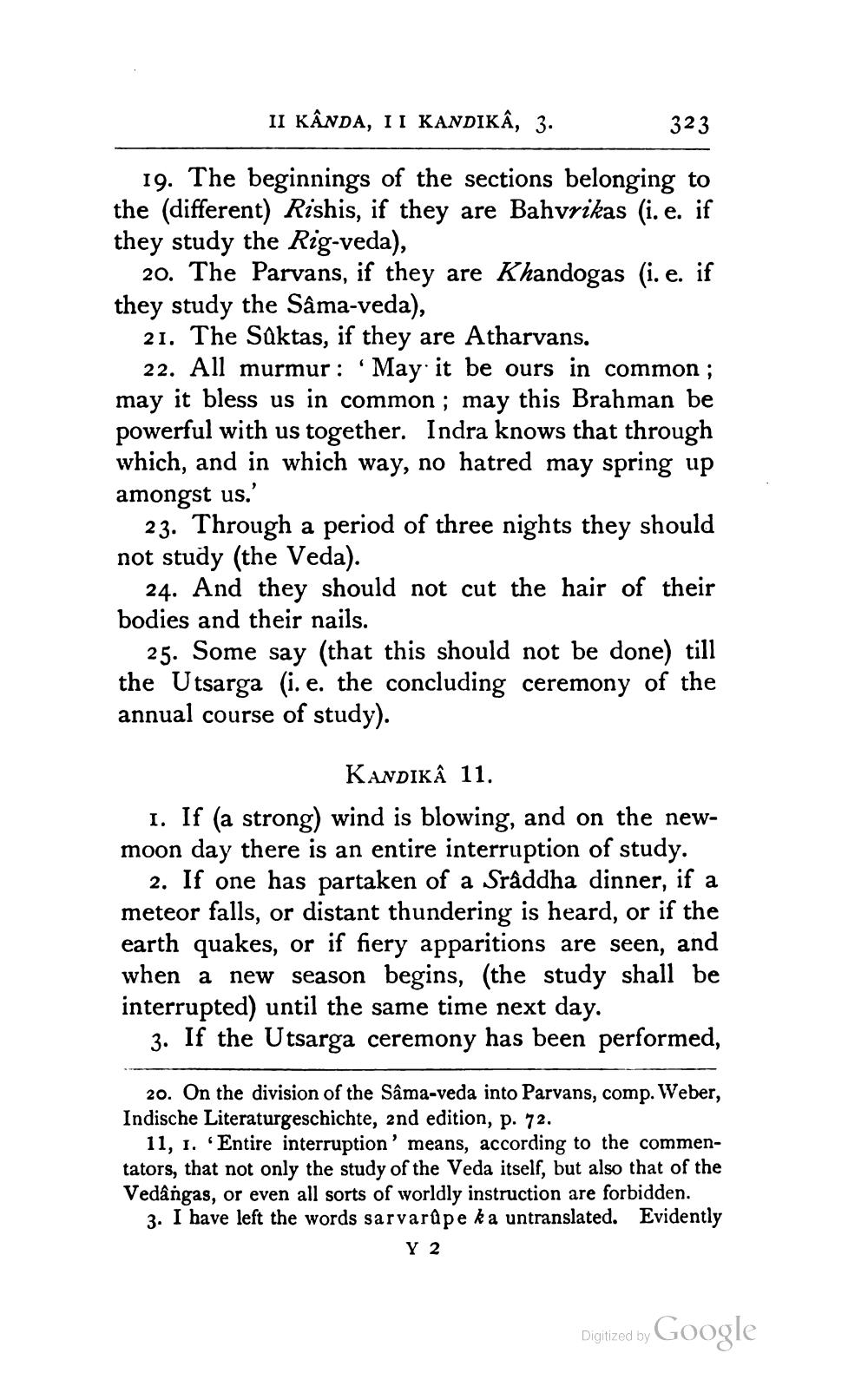________________
II KÂNDA, 1I KANDIKÂ, 3.
323
19. The beginnings of the sections belonging to the different) Rishis, if they are Bahvrikas (i. e. if they study the Rig-veda),
20. The Parvans, if they are Khandogas (i.e. if they study the Sâma-veda),
21. The Suktas, if they are Atharvans.
22. All murmur: May it be ours in common; may it bless us in common; may this Brahman be powerful with us together. Indra knows that through which, and in which way, no hatred may spring up amongst us.'
23. Through a period of three nights they should not study (the Veda).
24. And they should not cut the hair of their bodies and their nails.
25. Some say (that this should not be done) till the Utsarga (i. e. the concluding ceremony of the annual course of study).
KANDIKÂ 11. 1. If (a strong) wind is blowing, and on the newmoon day there is an entire interruption of study.
2. If one has partaken of a Sraddha dinner, if a meteor falls, or distant thundering is heard, or if the earth quakes, or if fiery apparitions are seen, and when a new season begins, (the study shall be interrupted) until the same time next day.
3. If the Utsarga ceremony has been performed,
20. On the division of the Sâma-veda into Parvans, comp. Weber, Indische Literaturgeschichte, 2nd edition, p. 72.
11, 1. Entire interruption' means, according to the commentators, that not only the study of the Veda itself, but also that of the Vedângas, or even all sorts of worldly instruction are forbidden. 3. I have left the words sarvardpe ka untranslated. Evidently
Y 2
Digitized by Google




